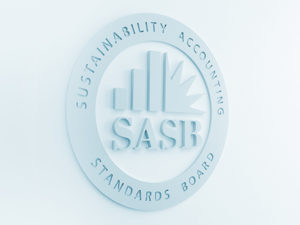By Janine Guillot
This week, SASB submitted our response to the US Securities and Exchange Commission’s request for input on climate change disclosure. The SEC’s consultation signals a commitment to give serious consideration to whether and how regulation might more effectively address the information needs of 21st century investors. SASB supports the SEC’s increased interest and initiative in the area of sustainability-related financial disclosure and believes generally accepted sustainability disclosure standards can play a key role in addressing this emerging priority.
SASB was established—and our Standards were subsequently developed—to address a clear market need for consistent, comparable, reliable sustainability information that is material to the creation of enterprise value. It is our hope that the SEC’s efforts will be carried out in a way that meets this market need. To ensure that our views appropriately reflect those of market participants, we’ve been engaging with companies, investors, trade associations, and other experts to absorb a range of perspectives on SEC action and identify key areas of general agreement.
Through this approach—which in many ways mirrored the consensus-building efforts that drive our standard-setting process—we believe we have developed a set of recommendations that can (1) provide investors with decision-useful information, (2) reduce disclosure complexity for companies, and (3) help establish a global sustainability disclosure baseline that would enable a “building blocks” system to balance international consistency with jurisdictional specificity.
In responding to the SEC’s request for comment, SASB:
- Makes the case that sustainability information is market infrastructure essential to making informed investment and voting decisions;
- Encourages the SEC to consider the full range of sustainability factors that investors consider in their assessments of enterprise value, in addition to climate change;
- Emphasizes the value of industry-specific disclosure to investment decision making, including with respect to climate risk;
- Stresses the importance of strong governance and a robust, transparent due process to ensure sustainability standards can evolve along with the market;
- Describes the role of SASB Standards in providing investor-focused disclosure on the sustainability issues reasonably likely to be financially material for the typical company in an industry;
- Makes a case for leveraging existing standards and frameworks (including the SASB Standards and the TCFD recommendations) to establish a common structure for sustainability-related financial disclosure that includes an appropriate mix of qualitative and quantitative information, as well as cross-industry and industry specific metrics;
- Suggests the SEC encourage the use of third-party standards that meet specified criteria for industry-specific disclosures (e.g., SASB Standards).
- Encourages the SEC to engage in the efforts of the IFRS Foundation to ensure international coherence.
With these recommendations, we believe the SEC can develop an approach to sustainability-related financial disclosure that effectively serves its tripartite mission: to protect investors; maintain fair, orderly, and efficient markets; and facilitate capital formation. This outcome would address a clear and pressing market need, providing investors with decision-useful information in a manner that is cost-effective for companies.
We encourage you to read our full response. The SEC’s consultation remains open through June 13. We believe this consultation represents a significant opportunity to achieve the clarity that investors and companies alike have long sought in the sustainability disclosure ecosystem. We encourage you and your organisation to respond to ensure your own views are considered, because SEC action in this area can only be as effective as it is informed.
Janine Guillot is CEO of SASB.
